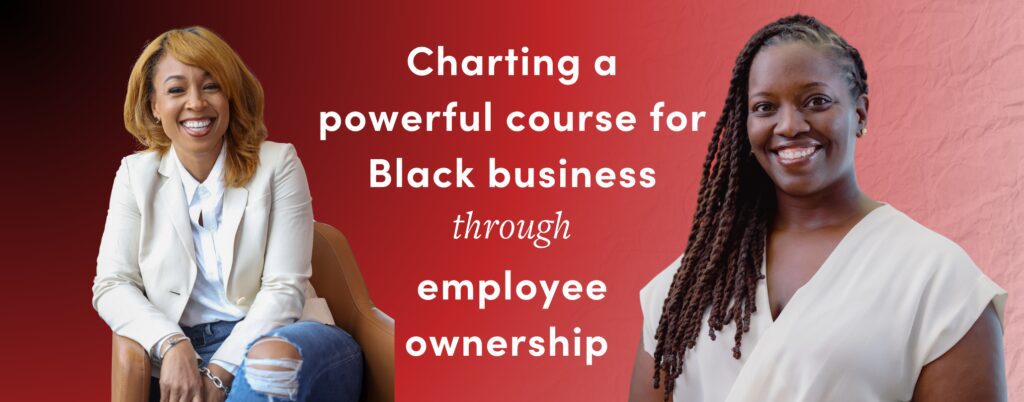August is Black Business Month, and it’s a time when the Atlanta metro area can realize its potential for significant change in addressing racial wealth inequality.
From data we collected at the Atlanta Wealth Building Initiative, Atlanta currently holds the top spot for America’s highest income and racial wealth inequality, with a staggering 36% of Black households in the region having zero or negative net worth.
While this level of inequity has been generations in the making, our generation can make a significant impact on advancing equity. By advocating for a shift to employee ownership, we can help individuals and communities build real wealth.
Employee ownership, or “EO,” is a business structure that empowers workers by allowing them to share some or all of a company’s equity. It is a well-established strategy for workforce retention that benefits workers and owners alike. To make progress in reversing income inequality, we can work with our region’s Black-owned businesses and businesses with a high density of Black workers to transition them to employee ownership.
Although many Black businesses in Atlanta are concentrated in low-revenue sectors, we’ve seen success transitioning businesses in all industries, from accommodation and food service to manufacturing and construction. In a study of privately held businesses in the Atlanta Metro region, Project Equity found that 6,274 businesses are Black-owned. These businesses, coupled with the nearly 30,000 businesses with owners near retirement age, mean our region is ripe to decrease the racial wealth gap through employee ownership.
EO can catalyze Black workers to build wealth and economic stability while creating more community economic opportunities. Yet, not all businesses are immediately ready for a transition to employee ownership. Roughly two-thirds of Black-owned companies have fewer than 10 employees, which is typically too small of a workforce to transition to employee ownership. Other barriers to transitioning a Black-owned business include raising capital, as forty-four percent of Black small business owners use cash to fund their businesses. Financing can help businesses begin the transition with less hardship on the employer or employees, and solutions like the Employee Ownership Catalyst Fund offer transition financing, and CDFIs, like the Shared Capital Cooperative and others, have developed an ecosystem of capital support to fund employee ownership.
Atlanta has a treasure trove of creative, community-minded Black employee-owned businesses that benefit the entire community. Take, for example, Pecan Milk Co-op. Georgia grows more pecans than anywhere else in the world, and companies like Pecan Milk Co-op are crucial to the Georgia economy. They have been around for a decade and are growing.“Employee ownership has meant having the agency to decide where the money goes in our business,” shared founder Nijil Jamal Jones at the recent Employee Ownership Equity Summit. “Starting and running a business like this has meant we’re doing the impossible.”
What conditions do communities need to see success in shared ownership models like employee ownership? Employee-owned companies like Pecan Milk Co-op need an ecosystem to help make the impossible possible. Economic development agencies play a crucial role in elevating the business community’s awareness of the importance of retaining small and middle-market businesses in the local economy. Worker centers are important resources to help employees understand businesses and their potential role as owners. More flexible capital is needed to finance the transition to employee ownership without obligating the workers to any personal guarantee. And, through ongoing partnerships with institutions like Morehouse College, we must continue developing strategies to leverage EO to reverse long-standing racial wealth inequality.
With this commitment, Atlanta can become a model for other areas in the South to grow real wealth for Black families and communities across generations.
Kim Addie is the Vice President of Strategy and Impact at Atlanta Wealth Building Initiative and Jennifer Bryant is the Program Manager for the Black Employee Ownership Initiative at Project Equity.
